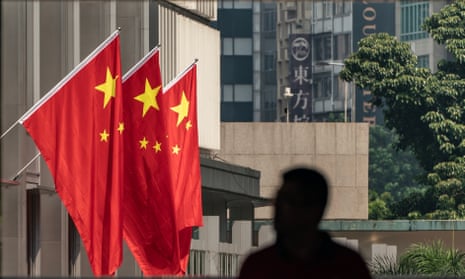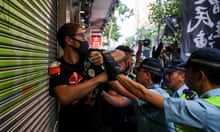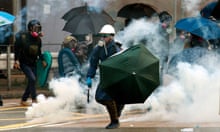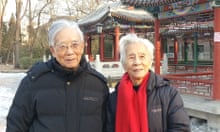The 70th anniversary of the People’s Republic of China, which will be marked on Tuesday by a mass military parade in the heart of Beijing, is less a historical commemoration than a political event. The Communist party of China (CPC) has understood the power of history ever since it seized the reins in 1949: in its earliest days, it encouraged citizens to “recall past bitterness”, to make the New China all the sweeter. Xi Jinping understands history’s importance better than any leader since Mao Zedong. Not long after taking power, he warned his colleagues that “historical nihilism” was an existential threat to the party’s rule on a par with western democracy.
The tanks, planes, troops and missiles tell a story: in 1949, the republic’s 17 aircraft were ordered to fly over twice, to make the display look more impressive. This time the west will watch closely as the People’s Liberation Army unveils new missile, stealth and unmanned vehicle capabilities. The PRC has outlived its big brother, the Soviet Union, and outgrown western economies. Yet it now faces new challenges.
Many in China are grateful for the party’s rule. It enjoys a level of support that many democratically elected governments would envy, and not only because of its mammoth propaganda and censorship apparatus. The last 70 years have seen extraordinary progress in lifespan, literacy and incomes: hundreds of millions are no longer living in poverty. Yet people were not lifted out of poverty; they worked their way out. The party banned the family tyranny of forced marriages, but brought the official tyranny of the one-child policy, and even now polices the womb. The advances came at a terrible and wholly unnecessary cost. The famine sparked by Mao’s Great Leap Forward took tens of millions of lives. Tens of millions more people were hounded in the Cultural Revolution.
Even some of those worst affected see cause to celebrate today. Yet many in China are angry, cynical or despairing. The party-state’s cruelties are both vast and petty. In Xinjiang, perhaps 1.5 million Muslims are locked up in camps which the party euphemistically calls vocational training centres. Meanwhile a six-year-old boy is forced out of school because his father has sought to use China’s own law to uphold basic rights.
The party-state’s embrace of pomp and majesty itself has a remarkably brittle quality. The military parade is by invitation only; nearby residents are under order to keep their curtains closed. Elderly “Tiananmen mothers” who lost their children in the brutal crackdown on pro-reform demonstrations in 1989 have police guarding their homes today.
Since the massacre, the CPC has doubled down on “national education”, and the construction of a history in which its central role is not class struggle but putting an end to “national humiliation”. This narrative grows all the more important as the costs of spectacular economic growth – fractured families, grotesque corruption, inequality and environmental devastation – are succeeded by its slowing, and as conflict with the US looms large.
Meanwhile in Hong Kong, a huge swathe of the population has shown that not everyone is grateful for the party-state’s rule. The 17-week-long protest movement, and the reaction to it, has in turn has boosted support for Taiwan’s incumbent president, Tsai Ing-wen, in the upcoming elections – undermining Beijing’s hopes.
Under these circumstances, the party is promoting its historical message more assiduously than ever, at a time which, though very different from the past, bears distinct echoes of it. The “people’s leader” has overseen growing repression, a resurgence of ideology, and is increasingly invoking the idea of struggle. China is seeking to reshape the international order once more. Xi is already looking ahead to the republic’s centenary, 30 years hence. Might another story be told by then?








